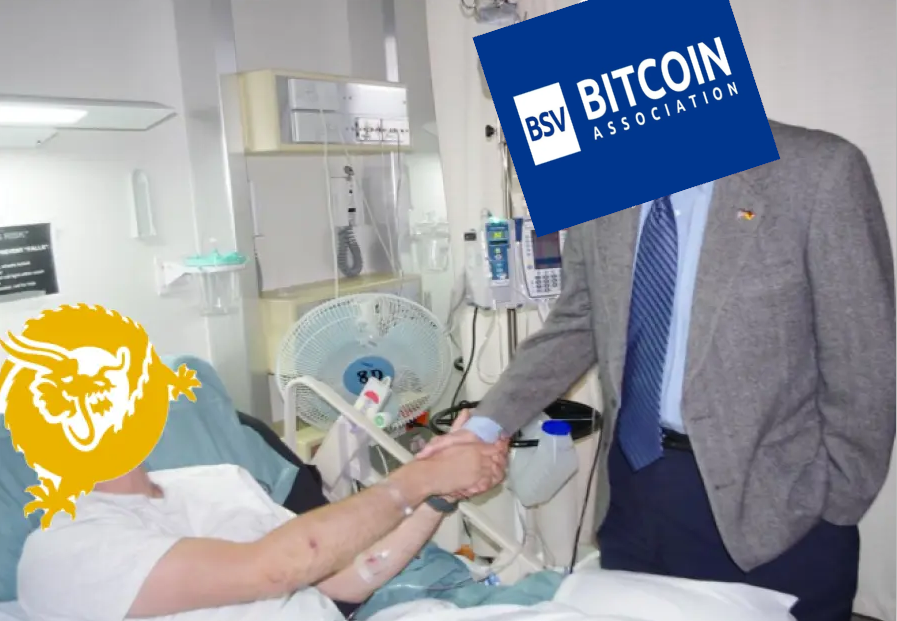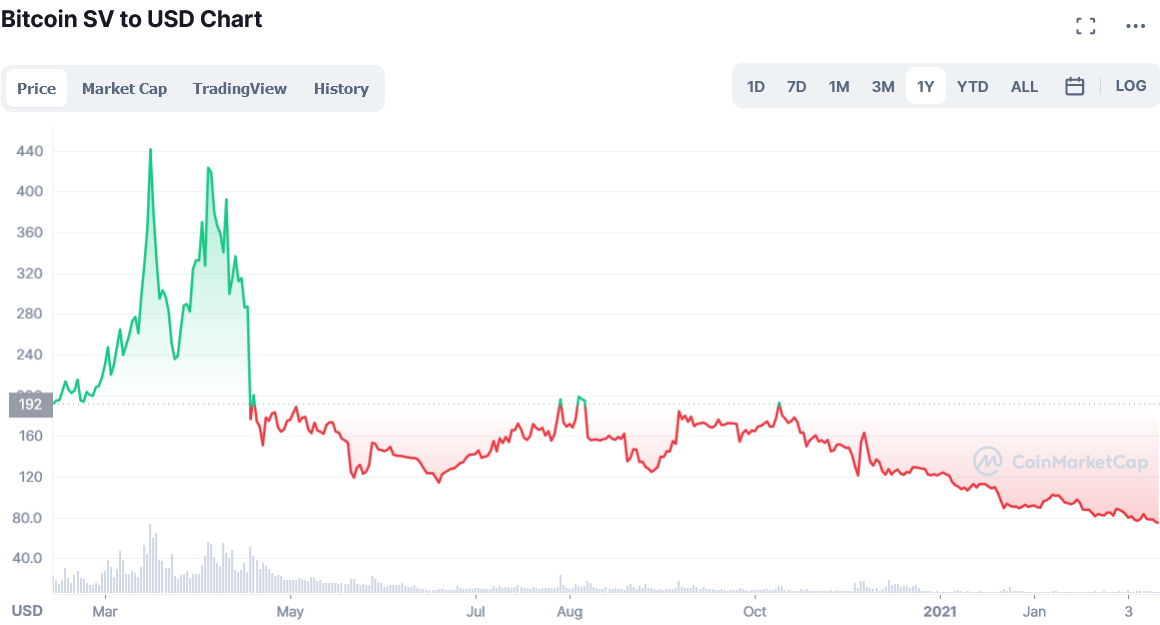BSV May Not Survive the Bear Market

Incompetent leadership and a bad week
Bitcoin Satoshi Vision, known as BSV, has not had a great week. The coin is near an all-time low, and the latest news cycle has been a series of gut punches to BSV leadership. When the leaders of the blockchain are a man faking to be Satoshi and an ignorant businessman, it's no surprise.
The news cycle started off with United States Judge Bloom ordering Craig Wright to pay an additional $43 million in prejudgment interest on top of the existing $100 million he owed to Ira Kleiman's company.
Ira Kleiman sued Craig Wright, claiming that Wright stole the Satoshi Bitcoin fortune from his late brother Dave. The lawsuit had been going on for years, but recently was settled with the Judge ordering Wright to pay $100 million to Ira, who is the head of Dave Kleiman's estate.
Unsurprisingly, Faketoshi has not paid a cent of it yet.
Next, web developer Jameson Lopp published an article on his blog discussing his attempt at running a BSV node. It did not go very well, to say the least. The node kept crashing despite what he did to try to make it work. Lopp ultimately discovered a bug that caused the node to keep downloading blocks without regard to block height, resulting in an inevitable crash.
Humorously, BSV recently announced a new bug bounty program. It's doubtful they'll be giving Lopp a reward for his work.
Lopp occasionally writes pieces on BSV and Craig Wright, but he's mostly stayed out of it in recent years. A few years back, Lopp did release an important investigative piece for Bitcoin Magazine on Craig Wright's past fraud that got a lot of attention.
The week ended with a researcher on Twitter discovering that the Bitcoin Association, one of the entities behind the development of BSV, can declare any new block invalid, essentially making the blockchain now permissioned.
Lawsuits galore
There do not appear to be any fundamentals behind BSV, which makes perfect sense given it's near all-time low price status.
In order to generate value in holding BSV, Craig Wright does appear to have some strategies. Wright spends much of his free time suing people who oppose him in an effort to gain PR as Satoshi and attract attention to BSV.
A sad, successful example of this was when they sued Cobra, the anonymous person behind bitcoin.org, to take down the whitepaper, since Wright claims he wrote it and has the US patent for Bitcoin. Cobra didn't show up in court, and the case went to Faketoshi.
Many of the lawsuits are not successful, however. They did this in the past with Adam Back and Vitalik Buterin after both men called out Wright out in public for being a fraud. Craig and his team ended up dropping both cases and paying the legal fees for Back and Buterin.

The psychology of a BSVer
BSV has not died yet, somehow. Human psychology plays a large role in why BSV still has some supporters barely keeping it afloat.
People simply fall prey to the concept of not wanting to lose.
BSV keeps falling like a knife, and their cult followers continue to catch it. They will keep buying until it hits zero in an effort to gain back their fiat. Put simply, these investors are inexperienced and would rather have a shot at regaining their initial investment, than cutting their losses and moving on to better investments.
It's always a sad moment in crypto when you come back with less fiat than you go in with.
There are dozens of paid marketers like Kurt Wuckert Jr who spread BSV nonsense on X and various other platforms. They only have one talking point, which is that Craig is Satoshi, BSV is the real Bitcoin, and anyone that calls out their talking points is former Bitcoin dev Greg Maxwell.
Conclusion
BSV has nothing going for it. Their last ditch effort seems to be the terranode update, which would just centralize the network even more. Given the recent news, BSV may not survive the bear market.
Article Disclaimer: The information in this article is based on research and represents the author's opinion, not established fact. Readers should evaluate independently.

